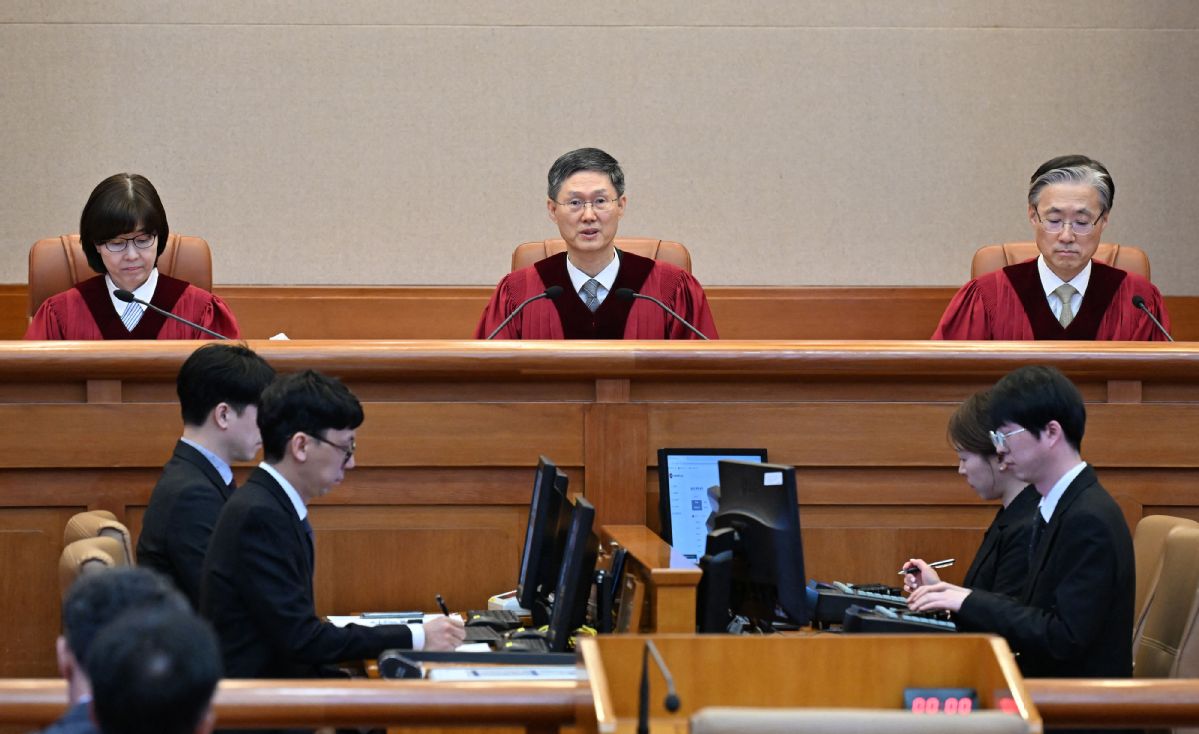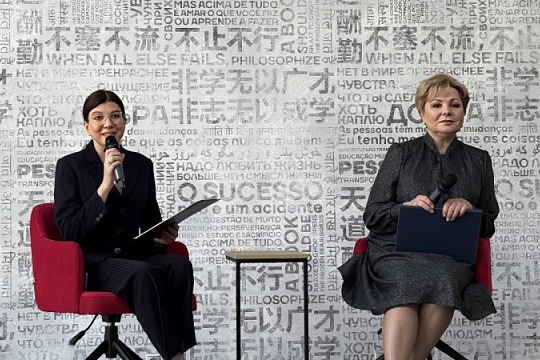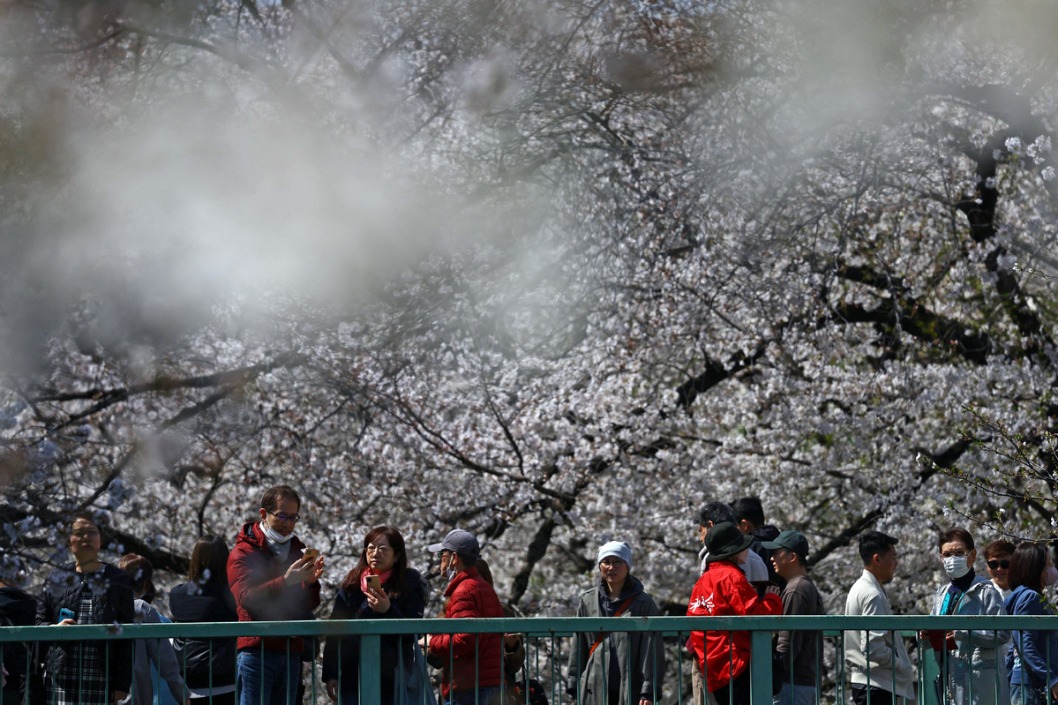Yoon's ouster paves way for presidential election


The whole of South Korea heard the decisive voice of Moon Hyungbae, acting chief of the Constitutional Court, announce live at 11:22 am on Friday: "Ruling: Respondent President Yoon Suk-yeol is hereby removed from office."
The verdict capped months of political chaos that divided the nation, and followed a unanimous decision by the eight justices of the country's Constitutional Court to uphold a motion by the nation's parliament to impeach Yoon over his short-lived imposition of martial law in December.
The ruling ends Yoon's presidency after just two years and 11 months, but opens the door to the next national election, as an early presidential election must be held within 60 days, or no later than June 3.
"The confirmation of impeachment will help stabilize this country," said Wang Son-taek, an adjunct professor at Sogang University in Seoul. "The message in the court's ruling was powerful and precise."
Acting President Han Duck-soo, who is also prime minister, said he will ensure that there is no vacuum in national security or foreign affairs and that public order is maintained, according to Yonhap News Agency.
"I will do my utmost to oversee a smooth and fair presidential election," said Han, who also called for "political neutrality" in government agencies to guarantee a fair snap election.
Han is obligated to announce the election date by April 14, because the date for an election to fill a presidential vacancy must be announced at least 50 days in advance, according to South Korea's law.
National Assembly Speaker Woo Won-shik emphasized the need for swift governance coordination to prevent a political vacuum amid the upcoming election and to ensure a smooth transition for the new administration. Woo also urged all parties to refrain from divisive rhetoric and resolve political polarization.
Yoon declared martial law on the evening of Dec 3 but lifted it six hours later after the opposition-led National Assembly voted to reject it and later approved an impeachment motion for the top court to confirm or deny.
Recognizing all charges against Yoon, including violating the Constitution by declaring martial law and sending troops to the National Assembly, the Constitutional Court said Yoon's "unconstitutional and illegal acts betrayed the trust of the people and constituted a serious violation of law that cannot be tolerated from the perspective of protecting the Constitution".
Moon said Yoon's violations have severely damaged the constitutional order, with the benefits of upholding the Constitution far outweighing the costs of removing the president.
Yoon, who did not attend the verdict session in person, said he was deeply sorry and regretful that he had failed to meet the people's expectations.
"It has been a tremendous honor to serve the nation," Yoon said in a message through his legal team. "I will continue to pray for our beloved Republic of Korea and its people."
Yoon became the second sitting South Korean president to be ousted by the Constitutional Court, after former president Park Geun-hye. The decision marked the longest impeachment deliberation — 111 days — in the country's history.
Wang, of Sogang University, said that the ruling will change the political landscape of South Korea, with the opposition party now in a compelling position in the next election.
Yet the adjunct professor said polarization will remain as a key challenge for the South Korean people and politicians.































